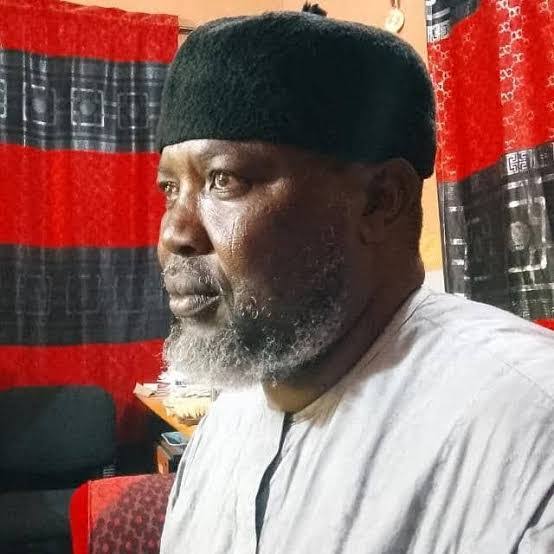Compulsory Voting is not Nigeria’s Priority: Lawmakers must be accountable first, by Dr Tukur Madu Yemi
Introduction:
A well-known member of Nigeria’s National Assembly recently suggested that voting should be made compulsory. This idea has caused a lot of debate across the country. While encouraging people to vote is a good goal, forcing citizens to vote does not solve the real problems in Nigeria’s elections and democracy. The country faces serious challenges like insecurity, weak government systems, economic struggles, and people losing trust in politics. Forcing people to vote now could make them even more unhappy and distrustful.
Making voting compulsory without fixing the broken system is like giving medicine without knowing what illness you have. Real democracy needs strong institutions, trust, and leaders who are responsible to the people. Without these, compulsory voting becomes a pointless action instead of a real way for people to participate in their country.
1. The Real Problem in Nigeria’s Democracy: Lawmakers Are Focusing on the Wrong Things
The low number of voters in Nigeria shows bigger problems, not the problem itself. Many people don’t trust politicians or believe their votes matter. In the 2023 elections, only 27% of registered voters voted, the lowest since Nigeria’s Fourth Republic began.
This low turnout is not just because people don’t care. Many things stop people from voting, like insecurity in some parts of the country, poor election planning, vote-buying, fake ballots, and slow election results. Courts sometimes overturn election results in ways that make people lose trust even more.
Some people compare Nigeria to countries like Australia and Belgium to support compulsory voting. But those countries have strong, trusted institutions, good laws, and social programmes. Nigeria does not have these yet. For example, Australia scores very high on the Corruption Perception Index, while Nigeria scores very low. Forcing voting without first building trust and strong systems can harm democracy even more.
2. What Nigerians Really Want: To Be Seen, Heard, and Represented
The main reason Nigerians don’t trust the system is that they feel ignored by their leaders. A 2022 survey showed that over 75% of Nigerians believe their representatives rarely listen to them. This shows a big problem: people vote, but once elected, politicians don’t represent or respond to their needs.
Instead of forcing people to vote, lawmakers should focus on staying connected with their communities. This could include holding regular meetings where people can talk directly to their representatives, sharing clear reports on what lawmakers do, and making these reports public.
Also, lawmakers should have offices in their local areas with budgets to reach out to people, get feedback, and track local projects. When people see real changes and can easily contact their leaders, they will want to vote more—without being forced.
3. Democracy Needs Willing Participation, Not Force
A strong democracy is not just about how many people vote, but why and under what conditions they vote. While compulsory voting may increase numbers, it does not guarantee better government or more trust.
For example, Switzerland has high voter participation without making voting compulsory. This is because people are educated about politics, feel included in government, and have a strong democratic culture. Nigeria should aim for this kind of willing, informed, and excited participation—not forced voting.
Making voting mandatory in a country where many people don’t trust the system could make voting meaningless. It could also punish vulnerable groups like displaced people, rural voters, and young people who already feel left out.
4. Steps Nigeria Should Take Before Making Voting Compulsory
To improve democracy in Nigeria, the following actions should come first:
Electoral Reforms: Give the Independent National Electoral Commission (INEC) full independence with enough funds, enforce strict deadlines for announcing results, and use technology like biometrics to stop fraud.
Voter Education: Teach civic responsibility in schools and communities. Special campaigns should target young voters, first-time voters, and people in rural areas to build a strong culture of political participation.
Stronger Institutions: Make sure courts, police, and election bodies are independent and well-trained to act fairly and without pressure.
Fight Corruption: Pass and enforce laws that stop vote-buying and punish those who bribe or accept bribes. Regulate campaign money to make elections fair for all candidates.
Hold Lawmakers Accountable: Set up systems to check how well lawmakers do their jobs, including how they serve their communities. Lawmakers should only be re-elected if they prove they are working for their people, not just passing laws.
These steps address why many Nigerians do not vote and why they do not trust the system. These problems must be fixed before making voting mandatory.
Conclusion: Build a Democracy Based on Trust, Not Force
Members of Nigeria’s National Assembly, encouraging people to vote is a good goal. But your success will be judged by the quality of your actions, not by how many laws you pass. Forcing voting may seem like a quick fix, but it hides the deeper problems in Nigeria’s democracy.
What Nigeria really needs is not another law forcing people to vote, but a new agreement based on trust, openness, and real development. We should not confuse high voter numbers with a healthy democracy, nor mistake force for real support.
A democracy works best when people choose to vote because they believe their vote matters—not because they are forced. This belief grows when leaders listen, include everyone, and run honest and effective institutions.
To build a lasting democracy, Nigeria must focus less on forcing participation and more on inspiring it. When government is inclusive, transparent, and accountable, voting becomes a right citizens proudly embrace—not a duty they dread. That is the democracy Nigeria truly deserves.
Dr Tukur Madu Yemi writes from
Federal University of Kashere Gombe.
Email: alhajitukur68@gmail.com.
Phone: 08066289200/09024252525
Follow the Neptune Prime channel on WhatsApp:
Do you have breaking news, interview request, opinion, suggestion, or want your event covered? Email us at neptuneprime2233@gmail.com





